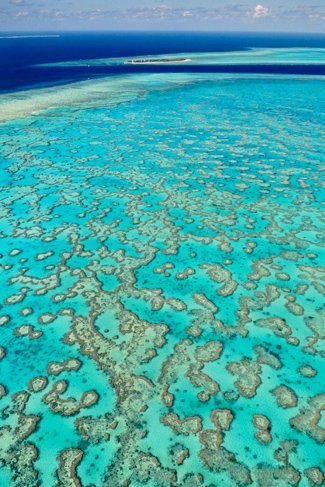Barrier Reef downgrade decision postponed

A DECISION TO PLACE the Great Barrier Reef on a list of World Heritage sites in danger has been postponed until February 2014.
The United Nations’ environment arm, UNESCO, had planned to decide upon the new listing in June, but has delayed the decision while it awaits new information from the Queensland and Commonwealth governments.
“UNESCO hasn’t enough to go on to make a decision yet,” says Dr Colin Hunt, an ecological economist from the University of Queensland. “What is not clear – but is crucial to the decision – is whether new port developments in pristine coastal environments will be rejected or approved by the Commonwealth.”
Prognosis poor for Great Barrier Reef
At the moment, the proposed developments are being assessed under Queensland Environmental Impact Assessment legislation.
In 2012, a World Heritage Committee report found that the scale of proposed developments in and adjacent to the reef presents a significant risk. “UNESCO is anxious because Queensland has relaxed its rules governing coastal development in order to boost the state’s economy,” Colin says.
Water quality is also a concern. Although the federal government recently fulfilled a UNESCO request to continue funding Reef Rescue – a program aimed at reducing nutrient, pesticide, herbicide and sediment runoff from farming and grazing properties – water quality on the reef needs to improve before the reef can avoid listing.
“There is not much hope of reef recovery between now and February 2014,” Colin says. “The long-term prognosis is poor and even if the reef is not declared in danger in February, it could well be downgraded in the future.”
Few developed nations on World Heritage in Danger list
Governments should focus on reducing coastal development, lowering fishing quotas and ensuring better land-management practices are followed, he adds, so that the reef has some hope of meeting the challenge of climate change.
A 2012 study revealed the reef has lost more than half its coral cover since 1985 due to increases in cyclone frequency, coral bleaching and coral predation by crown-of-thorns starfish. All three threats have been linked to climate change.
“Given that global warming poses the ultimate test for the Great Barrier Reef, we also need to consider the climate change impacts of our coal exports,” Colin says.
Out of around 40 sites on the World Heritage in Danger list, only two others – the Florida Everglades in the USA and the Liverpool Maritime Mercantile City in the UK – are found in developed nations.
RELATED STORIES

